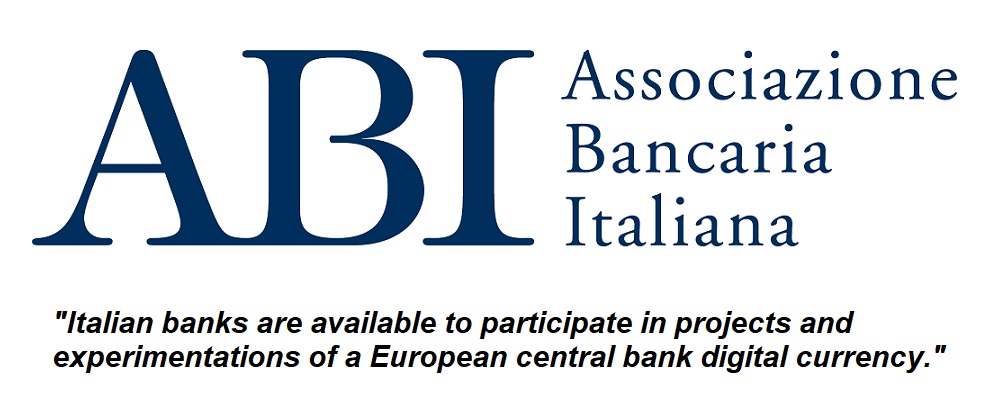
The Executive Committee of the Italian Banking Association has approved general guidelines of its position concerning digital money and Central Bank Digital Currency (CBDC).
„Italian banks are available to participate in projects and experimentations of a European central bank digital currency, contributing in foster the implementation of a European level initiative in a pilot national banking sector, thanks to their competences developed in a concrete realisation of distributed infrastructure and governance.”, according to the press release.
With the aim of analysing this matter, last year ABI set up an expert group dedicated to exploring digital money and crypto assets. From this work derive the 10 considerations approved by the Executive Committee:
1. Monetary stability and a full respect of the European regulatory framework must be taken in account as a priority.
2. Italian banks are already working on a distributed ledger infrastructure thanks to Spunta DLT project. They want to be part of the change that come from such an important innovation like digital currency.
3. In the financial environment, a programmable digital money represents an innovation able to profoundly modify the way we conceive currency and exchange. This transformation can potentially deliver a great added value, in particular in terms of efficiency for both operational and support process. This is the reason why is so important to dedicate attention and energies to develop, quickly and in collaboration with the entire ecosystem, new instruments able to primarily support the development of the Euro area.
4. It is necessary that digital money deserves the maximum trust from the public. To this extent, it is essential that the highest standards of regulatory framework, security and supervision are fully respected.
5. Thanks to the key role played by the Central Bank, a CBDC represents the instruments that, more than others, can satisfy the innovation needs in alignment with the current framework of rules, existing instruments and interoperability with the analogical world. At the same time, an instrument like this may reduce the attractiveness of analogue tools issued by private or (in the fully decentralised implementation) non identifiable actors, due to a higher inherent risk.
6. To deliver at its maximum the potential of transformation of such kind of tools, it is of absolute interest the possibility, currently under consideration, to issued a retail European CBDC, that can represent an innovation of cash. Thanks to the role of banks, it is possible to identify technical solution and operational framework able to preserve current characteristics of cash, while adding several typical benefits of the digital world (already satisfied by digital payment instruments), such as the ability not to lose money and, in this period where sanitary risk is under attention, to operate contactless.
7. Analysing every detail, it would be possible to define how to distribute, store and exchange digital money in a way that enable to combine customer needs, together with the ability to ensure that the monetary policy is transmitted to the real economy and compliance to the regulatory framework. For sure, in each of these objectives, banks role is crucial.
8. A key success factor for the adoption of CBDC is to reach a frictionless user experience, ensuring at the same time full interoperability between digital and analogical world and a complete circularity among all ecosystem actors.
9. According the technological choices that will be taken, a particular attention to the protection of personal data of our citizens is required (privacy).
10. Thinking to the future that awaits us, the availability of a CBDC will enable several very interesting use cases: to foster peer.to-peer value transmission, supporting money exchange between person and machine and in a machine-to-machine scenario; to facilitate cross-border transactions settlement, reducing interest rate, exchange and counterparty risks; to promote, thanks to the programmability of this instrument, the automatic execution of payments when predefined situations arise, reducing administrative processes.
Banking 4.0 – „how was the experience for you”
„To be honest I think that Sinaia, your conference, is much better then Davos.”
Many more interesting quotes in the video below: